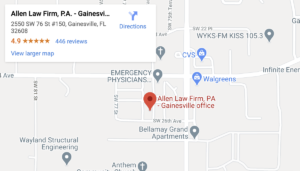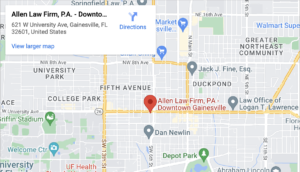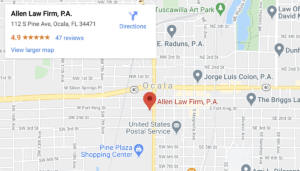
If you’ve been hurt in an accident in Florida—whether from a car crash, slip and fall, or other personal injury—you may hear the words “claim” and “lawsuit” a lot. While they are both ways to get compensation for your injuries, they are not the same thing.
Understanding the difference between a claim and a lawsuit can help you make the right choices for your case. In this article, we explain the difference between a claim and a lawsuit, how each works, and when one might be better than the other.
What Is a Personal Injury Claim?

A claim is usually the first step after an accident. This is an out-of-court process aimed at reaching a fair agreement quickly. It’s a request for money (compensation) from the person or company who caused your injury—or more often, from their insurance company. For example, you hear this language most often in car accident claims.
Your lawyer can typically open a claim by sending a demand letter to the insurance company asking them to pay for your damages. Damages can include medical bills, lost wages, pain and suffering, and other losses.
The insurance company will review the claim and can do one of three things:
- Accept it and offer a fair settlement
- Offer a lower amount
- Deny the claim completely
If you agree to a settlement, the case ends there. You’ll sign papers that say you won’t ask for more money later, and the insurance company will send a check.
You don’t need to go to court to file a claim. In fact, many personal injury cases in Florida are settled through claims without ever requiring a court appearance.
A Gainesville personal injury lawyer can help you gather evidence, draft a demand letter, and negotiate a fair settlement with the insurance company. Most lawyers work on a contingency fee basis, so you don’t pay unless you win.
What Is a Personal Injury Lawsuit?
A lawsuit is the next step in the claims process and is typically filed when negotiations stall. If the insurance company refuses to offer a fair settlement—or denies the claim—you may decide to file a lawsuit. This means taking the case to court.
A lawsuit starts when your attorney files legal papers (called a complaint) with the court. The other side (the defendant) then has a chance to respond.
A lawsuit can go through stages such as:
- Discovery – Both sides exchange information and gather evidence.
- Motions – Lawyers may ask the court to make rulings before trial.
- Mediation or Settlement Talks – Many lawsuits still settle before going to trial.
- Trial – If no agreement is reached, the case goes to court and a judge or jury decides.
Lawsuits take longer than claims and can be more expensive. But sometimes, filing a lawsuit is the only way to get full and fair compensation.
When Should You File a Claim?
You should file a personal injury claim as soon as possible after your accident. The sooner your lawyer can start gathering evidence and speaking with the insurance company, the better.
Claims are usually the best route if:
- You have clear evidence that the other party was at fault
- Your injuries are not severe or life-changing
- The insurance company is willing to negotiate
A strong claim can lead to a fair settlement without the time and stress of court. It also helps avoid legal fees that may be higher in a lawsuit. However, if the insurance company lowballs your damages or delays the process, it may be time to consider filing a lawsuit.
When Is It Time to File a Lawsuit?
In Florida, you usually have two years from the accident to file a personal injury lawsuit due to the statute of limitations. Waiting too long can mean losing your right to sue. So while a lawsuit is more complex, it’s an important tool when insurance companies refuse to offer a fair settlement.
Filing a lawsuit might be recommended when:
- The insurance company denies your claim without a good reason
- The settlement offer is too low to cover your losses
- Your injuries are serious and will require long-term care
- There is a disagreement about who was at fault
Sometimes, just filing a lawsuit shows the other side you are serious. Other times, it may take a trial to win the compensation you truly deserve. Your lawyer will help you decide if filing a lawsuit is worth it based on the facts of your case.
Contact Allen Law Accident & Injury Lawyers Today for a Free Consultation With Our Gainesville Personal Injury Attorneys
Getting hurt in an accident can turn your life upside down. Whether you file a claim or a lawsuit, the goal is the same: to get the money you need to heal and move on. Settling through a claim makes sense in many cases. But if the insurance company won’t treat you fairly, a lawsuit may be your best shot at justice.
At Allen Law Accident & Injury Lawyers, our skilled Florida personal injury lawyers can guide you every step of the way. We can help you build a strong claim and know when to push back against insurers.
Don’t wait to take action—your future may depend on it. Contact us today at (877) 255-3652 to speak with our Gainesville personal injury lawyers to begin the fight for the compensation you deserve.





